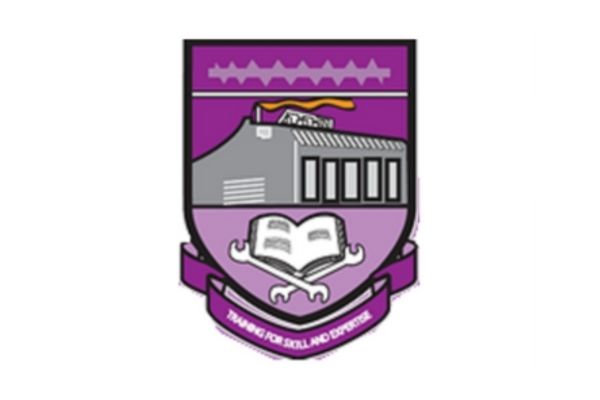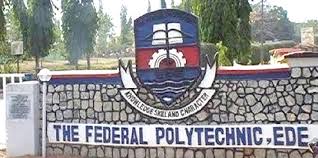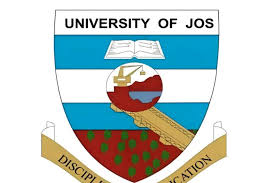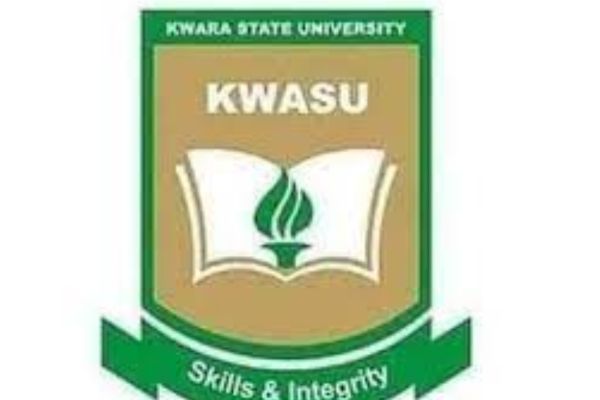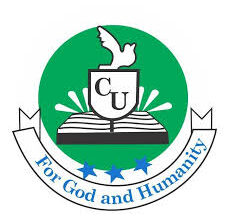Kwara State University (KWASU), located in Malete, Kwara State, Nigeria, is one of the foremost state-owned institutions committed to providing quality higher education to both local and international students. Established in 2009, KWASU has rapidly grown into an academic powerhouse, offering a wide range of undergraduate and postgraduate programs across various disciplines. The university’s core mission is to foster intellectual development, innovation, and societal progress through education. As with any institution of higher learning, KWASU faces numerous challenges, one of which is the issue of school fees, a topic that has sparked considerable debate among students, parents, and university administrators.
School Fee For KWASU In 2025/2026 Academic Year
School fees at KWASU represent a significant part of the cost of education, which students and their families must manage. Over the years, the fee structure at the university has evolved in response to various factors, including inflation, increased operational costs, and the need to maintain and upgrade educational facilities. While the university aims to provide quality education that prepares students for professional success, the financial burden of rising school fees is an ongoing concern for many families, especially in a country where access to affordable education is already a challenge for many.
The issue of school fees at KWASU is not isolated but is reflective of the broader situation in Nigeria’s higher education system. The government plays a crucial role in regulating the fees of state institutions, but financial sustainability remains a significant challenge for many public universities. KWASU, like many of its counterparts, has had to navigate the delicate balance of maintaining academic quality while ensuring that education remains accessible to a wide range of students. This dynamic has led to ongoing discussions about how to manage school fees while still delivering the caliber of education that the university aims to provide.
In addition to the government’s regulatory role, KWASU also seeks to alleviate the financial burden on students through various financial aid programs, scholarships, and partnerships with private organizations. However, these efforts are often not enough to fully offset the rising costs of tuition, accommodation, and other associated fees. The result is that many students are forced to take on part-time jobs or incur personal debts to finance their education, further complicating the issue of affordability and access to higher education.
This article delves into the school fee structure at KWASU, examining its evolution over time, the factors influencing fee increases, and the implications for students and their families. It also explores potential solutions to the ongoing financial challenges, with a focus on how the university can strike a balance between providing quality education and ensuring that it remains accessible and affordable for all students. Through this analysis, we aim to understand the broader context of school fees at KWASU and the impact they have on the student body and the university’s future.
Fee Structure and Categories at KWASU
As of now, the official school fees for Kwara State University (KWASU) for the 2024/2025 academic year have not been publicly released. However, based on the most recent information available, the fee structure is as follows:
- 100 Level Students (Year 1): ₦99,500
- 200 to 400 Level Students (Years 2-4): ₦109,500
- Hostel Accommodation (Optional): Fees vary depending on the type of accommodation chosen.
Please note that these figures are based on the previous academic session and are subject to change. For the most accurate and up-to-date information, it is advisable to regularly check the official KWASU portal or contact the university’s admissions office directly.
One crucial component of Kwara State University’s (KWASU) academic and administrative framework is the fee schedule. It lists the several financial requirements that students must fulfill to enroll and pursue their education. A wide range of services, including tuition, housing, library use, medical care, and other student-related costs, are covered by the price structure. Although the fee categories are extensive, they differ according to several circumstances, such as the department, the student’s resident status, and the degree of study.
Tuition Fees
At the core of the KWASU fee structure is the tuition fee, which is a direct contribution to the academic expenses of the institution. Tuition fees cover the cost of lectures, academic staff salaries, learning materials, and resources necessary for the delivery of education. For undergraduate programs, tuition fees typically vary across faculties and departments. For instance, specialized programs such as medicine, law, and engineering often attract higher tuition fees due to the additional resources and infrastructure required for practical training and research. In contrast, programs in the humanities and social sciences may have lower tuition fees, reflecting the less resource-intensive nature of the courses.
The tuition fee, which directly contributes to the institution’s academic costs, is the main component of the KWASU price structure. The cost of lectures, faculty salaries, course materials, and other resources required for instruction delivery are all covered by tuition fees. Tuition costs for undergraduate programs usually differ between departments and faculties. For example, because of the increased infrastructure and resources needed for research and practical training, specialty disciplines like engineering, law, and medicine sometimes have higher tuition costs. On the other hand, because the courses in the humanities and social sciences require fewer resources, their tuition costs may be lower.
Accommodation Fees
For students who choose to live on campus, accommodation fees form a significant part of the school fee structure. KWASU provides several hostel options, and the cost of accommodation depends on the type of room a student chooses, as well as the amenities provided. Accommodation fees are often tiered, with single rooms being more expensive than shared dormitories. These fees also cover the cost of maintaining the hostels, security services, utilities, and other related services. On-campus living is highly valued by students as it offers convenience and easy access to academic facilities, but the accommodation fees have been a subject of debate due to their periodic increases.
Accommodation costs make up a sizable portion of the tuition for students who decide to live on campus. There are various dormitory alternatives offered by KWASU, and the price of lodging varies according to the amenities and room type selected by the student. The cost of lodging is frequently tier-based, with private rooms costing more than shared dorms. The cost of utilities, security services, hostel maintenance, and other associated services are also covered by these fees. Students place a high value on on-campus living since it is convenient and provides easy access to academic resources, but the lodging costs have generated controversy because they are subject to recurring rises.
Library Fees
Like the majority of universities, KWASU boasts a well-stocked library that gives students access to a wide variety of scholarly resources, such as books, journals, and internet materials. Frequently covered by the total cost of tuition, library fees fund the upkeep of the library’s resources, the acquisition of new books, and the provision of digital access to scholarly databases. Even while the cost of library services is typically low, it nevertheless plays a significant role in the overall cost of tuition, particularly for students who depend on the library for academic and research assistance.
Health Services Fees
The health services fee is another important component of the cost structure. For any student at KWASU to receive medical care on campus, they must pay a health services charge. Basic medical services, such as minor illness treatment, immunizations, and use of the university health center, are covered by the price. The institution frequently works with local hospitals for students with more urgent medical requirements, and students may be referred to outside medical facilities. To guarantee that students keep their health while they are in school, the health care fee is a crucial component.
Examination Fees
In order to pay for the expenses related to giving academic tests, examination fees are usually assessed independently of tuition prices. Exam paper preparation, printing, invigilation, and the general administrative work needed to set up exams are all included in these expenses. Every academic session, KWASU students must pay examination costs, just like students at many other universities. Even though these costs are usually set, they might change a little based on a student’s degree of study and the number of classes they are taking.
Registration Fees
Another essential part of the school price schedule is the registration charge. These fees, which cover the administrative costs of registering a student for courses, are assessed at the start of each academic session. Paying registration fees guarantees that a student is formally registered in their courses and that their information is correctly entered into the university’s system. Usually a set fee, and there may be additional costs for late registration or course changes made after the registration deadline.
Laboratory and Practical Fees
Laboratory and practical costs are included in the total school price structure for students enrolled in programs that call for laboratory work, such as those in the sciences, engineering, and health sciences. These costs go toward keeping the labs maintained and furnished with the supplies, instruments, and equipment needed for hands-on training. Students’ access to well-equipped labs and the quality of their hands-on learning experience are guaranteed by the fees. Because science and engineering schools require specialized equipment, their costs tend to be greater than those of other departments.
ports and Recreation Fees
Sports and leisure activities are among the many extracurricular activities in which KWASU students take part. The institution includes a sports and recreation fee in the tuition to support these programs. This charge helps fund the upkeep of athletic facilities, event planning, and the supply of gear for students who participate in physical education classes. In addition, the fee might help fund the construction of fresh fitness and leisure projects, enabling students to balance their academic obligations with a healthy lifestyle.
Orientation and Induction Fees
KWASU levies an orientation or induction fee to incoming students. The expense of planning orientation programs that facilitate students’ seamless transition to university life is covered by this charge. These events include getting to know the campus, learning about academic resources, and receiving advice on how to handle student life. The purpose of the orientation program is to help new students overcome any social and academic obstacles they may encounter, and the related costs guarantee that these programs are planned and carried out correctly.
Miscellaneous and Other Fees
Along with the main price categories, KWASU students may also be subject to several other costs during their academic careers. These costs include things like internet access, course materials, student ID cards, and admission to exclusive workshops or events. While certain fees apply to all students, others are unique to particular programs. To fund activities like student entrepreneurship, career development services, and cultural events, the institution may also impose additional fees.
Tuition Fees and the Cost of Education at KWASU
Tuition fees are a central component of the overall cost of education at Kwara State University (KWASU). These fees are designed to cover the academic and operational expenses necessary for delivering quality education to students. Tuition fees at KWASU vary depending on the program, level of study, and the specific needs of each faculty or department. For instance, specialized programs such as medicine, engineering, and law typically have higher tuition fees due to the need for specialized facilities, equipment, and teaching resources. On the other hand, courses in less resource-intensive fields, such as humanities and social sciences, often have lower tuition fees. This differential fee structure ensures that the financial needs of each academic program are met while maintaining the university’s overall budget.
The cost of education at KWASU has been a subject of debate among students, parents, and the university administration. As with many other institutions, the rising cost of tuition is often linked to inflation and the increased financial demands placed on universities to maintain academic quality. For KWASU, the increase in tuition fees is driven by several factors, including rising operational costs, the need for continuous infrastructure development, and the desire to provide an improved learning environment. While the university’s management strives to keep tuition fees reasonable, the financial burden on students and their families can sometimes become a barrier to access, particularly for those from lower-income backgrounds.
In response to the growing financial challenges, KWASU has implemented various initiatives to alleviate the burden of tuition fees. These initiatives include scholarships, financial aid programs, and work-study opportunities that provide students with financial support. Scholarships are often awarded based on merit or financial need, and they play a crucial role in making education more accessible to deserving students. However, the number of scholarships available is limited, and many students still struggle to meet the full cost of tuition. As a result, many students are forced to seek loans, take on part-time jobs, or rely on family support to cover their fees.
The rising cost of tuition is not unique to KWASU but is a broader trend seen across many Nigerian universities, both public and private. The increasing cost of education is often attributed to the country’s economic challenges, including inflation, the devaluation of the naira, and the reduced funding from government sources. Public universities like KWASU are heavily dependent on tuition fees to supplement the often insufficient government allocations for educational funding. This financial model creates a situation where students and their families are increasingly expected to contribute to the cost of education, making the affordability of tuition a major concern.
The cost of education at KWASU goes beyond tuition fees. Additional costs, such as accommodation, textbooks, lab fees, and transportation, further contribute to the overall financial burden on students. For those who choose to live off-campus, the cost of housing and commuting can add significantly to their expenses. The university’s fee structure aims to provide a comprehensive understanding of the costs involved, ensuring that students are well-prepared for the financial responsibilities that come with pursuing a degree at KWASU. As the university continues to develop and adapt to the changing economic environment, the cost of education will likely remain a topic of discussion and consideration for both the university administration and its students.
Conclusion
The issue of school fees at Kwara State University (KWASU) is a complex and multifaceted topic that reflects broader challenges in Nigeria’s higher education system. As KWASU continues to evolve, the rising cost of education, particularly tuition fees, remains a critical concern for many students and their families. While the university strives to maintain academic excellence and provide a conducive learning environment, the financial burden of education can be overwhelming for some students, particularly those from less privileged backgrounds.
The university’s efforts to balance the need for financial sustainability with the commitment to providing quality education have led to a fee structure that includes various categories, such as tuition, accommodation, health services, and examination fees. Each of these categories plays a crucial role in ensuring that the university can continue to offer the necessary resources for students’ academic and personal development. However, the challenge lies in finding ways to make these fees more affordable while maintaining the high standards expected from a reputable institution like KWASU.
In response to these challenges, KWASU has implemented financial aid programs, scholarships, and work-study opportunities to support students in need. However, these programs, while helpful, are not always enough to fully alleviate the financial strain, especially as the cost of education continues to rise. Therefore, there is a need for continued dialogue between university administrators, students, and government authorities to explore sustainable solutions that can make education at KWASU more affordable and accessible.
As the university moves forward, the development of a more inclusive and equitable fee structure, along with increased financial support for students, will be key to ensuring that KWASU remains a place where all students—regardless of their financial background—can access quality education. The future of KWASU and its students depends on a collective effort to navigate the complexities of tuition fees and the cost of education, ensuring that higher education remains a pathway to opportunity and social mobility for all.



